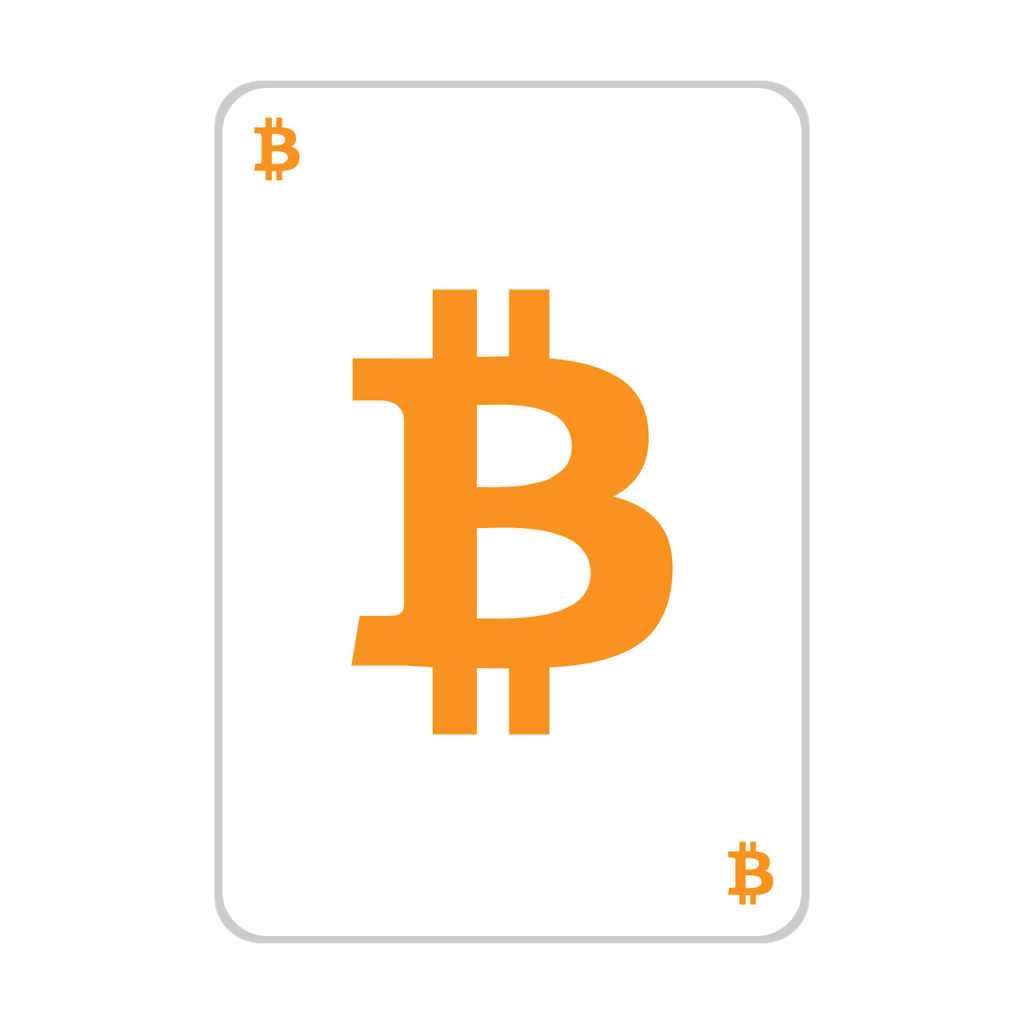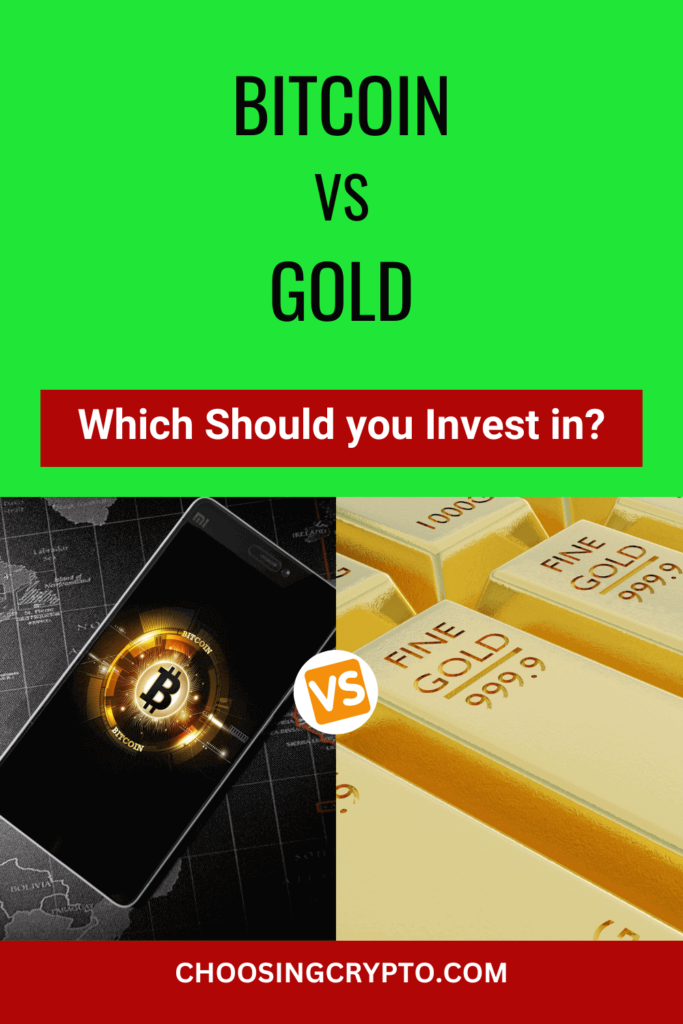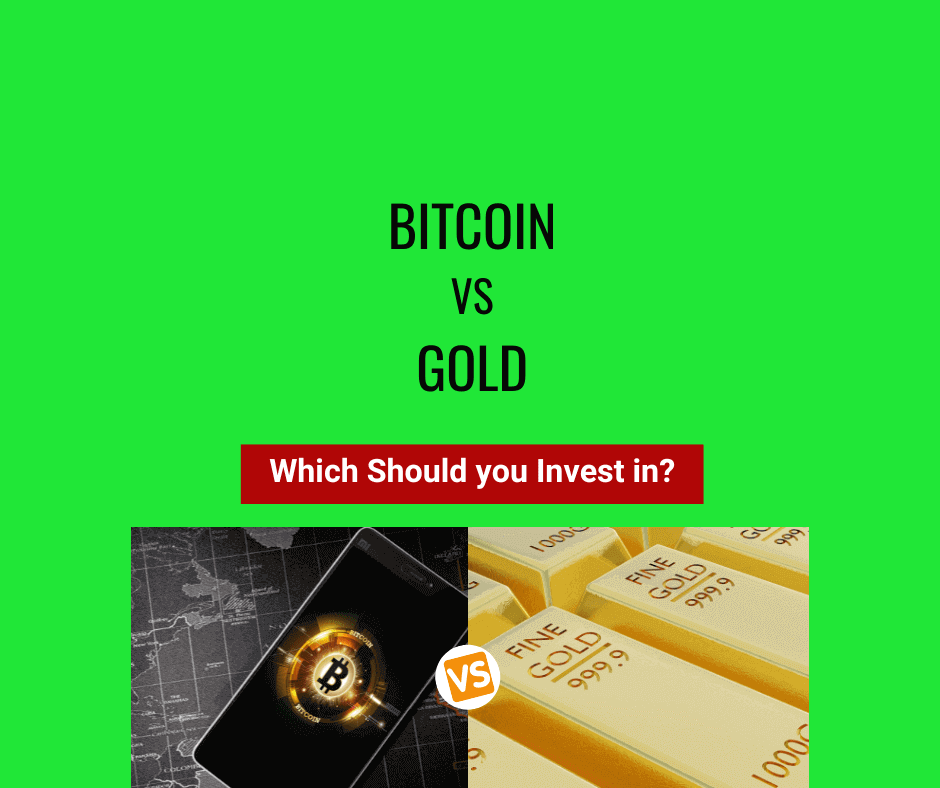Ready for the Bitcoin vs Gold debate? Let’s get into it so you can know which one you should invest in.
If you’ve been yearning for financial independence, eager to build your fortune, or simply seeking an electrifying adventure, you’ve come to the right place.
Both Bitcoin and Gold have captured the hearts of investors, but choosing the perfect path can feel as elusive as finding the pot of gold at the end of a rainbow.
But this blog post is going to be your guiding light through the labyrinth of cryptocurrencies and precious metals.
We’ll delve into their fascinating histories, contrasting features, and potential pitfalls of these alluring assets, arming you with the knowledge that will help you make a wise and rewarding decision.
So, buckle up as the battle of Bitcoin vs Gold begin.
Let’s find out which one you should invest in.
Get ready to make an informed and inspired choice that will set you on the path to financial prosperity and success.
Understanding the Basics of Bitcoin and Gold
Before we delve into this Bitcoin vs Gold debate, let’s take a moment to understand the fundamentals of both Bitcoin and Gold.
These two investment options couldn’t be more different, but they each offer unique qualities that have captured the attention of investors worldwide.
Bitcoin
Bitcoin is the trailblazer of the cryptocurrency revolution, and its story begins in 2009 when an anonymous person or group, known as Satoshi Nakamoto, introduced it to the world.
Unlike traditional currencies, Bitcoin is a decentralized digital asset, operating on a technology called blockchain.
This groundbreaking innovation eliminates the need for intermediaries like banks, as transactions are verified and recorded by a network of computers across the globe.

Key Points about Bitcoin:
1. Decentralization: Bitcoin operates without a central authority, making it resistant to government control or manipulation.
2. Limited Supply: There will only ever be 21 million Bitcoins in existence, ensuring scarcity and potentially driving prices up.
3. Volatility: Bitcoin’s price can be incredibly volatile, experiencing significant fluctuations over short periods.
4. Digital Ownership: Bitcoin is stored in digital wallets, accessible through private keys, giving users complete control over their holdings.
5. Borderless Transactions: Bitcoin enables fast and low-cost transactions across international borders, making it attractive for global trade.
[READ: How to Start Investing in Bitcoin as a Beginner]
Gold
Gold, on the other hand, has a history that spans thousands of years. Revered by ancient civilizations and modern societies alike, Gold holds a special place in human culture as a symbol of wealth and prosperity.
Unlike Bitcoin, Gold is a tangible asset that you can hold in your hand, making it a physical store of value.

Key Points about Gold:
1. Store of Value: Throughout history, Gold has retained its purchasing power and acted as a hedge against inflation.
2. Tangible Asset: Gold’s physical nature appeals to investors seeking a more traditional form of wealth preservation.
3. Global Acceptance: Gold is recognized and accepted worldwide, making it relatively easy to buy, sell, and trade.
4. Limited Growth Potential: Unlike Bitcoin, Gold’s value doesn’t experience rapid surges; instead, it typically grows steadily over time.
5. Safe-Haven Status: During economic uncertainties or geopolitical crises, investors often turn to Gold as a safe-haven asset.
The Case for Bitcoin
If you’ve been following the financial news, you’ll know that Bitcoin has caused quite a stir in recent years.
Now, let’s take a closer look at the case for why Bitcoin has captured the hearts and wallets of so many investors.
Pros:
1. High Growth Potential
One of the most compelling reasons to consider Bitcoin as an investment is its jaw-dropping growth potential.
Over the years, early adopters and believers in the technology have witnessed astronomical returns on their investments.
Bitcoin’s price has surged from mere pennies to thousands, and even tens of thousands of dollars, drawing attention from both individual investors and institutional players.
[READ: How People Make Money from Bitcoin]
2. Limited Supply, Digital Gold
Unlike traditional currencies that can be printed endlessly by central banks, Bitcoin has a fixed supply.
Only 21 million Bitcoins will ever exist, making it a scarce digital asset akin to precious metals like Gold.
This limited supply characteristic has earned Bitcoin the nickname “digital gold,” as it shares similar qualities of being a store of value.
3. Growing Institutional Adoption
In recent years, we’ve seen a remarkable shift in perception among institutional investors and corporations.
Prominent companies have added Bitcoin to their balance sheets, signaling a growing acceptance of cryptocurrencies as a legitimate investment.
This institutional endorsement has further boosted confidence in Bitcoin’s potential.
4. Global Accessibility and Borderless Transactions
Bitcoin transcends geographical boundaries, allowing people from all corners of the world to participate in its ecosystem.
The ability to send and receive funds across borders quickly and with relatively low transaction fees makes it a valuable tool for international trade and remittances.
5. Decentralization and Financial Sovereignty
At the core of Bitcoin’s allure lies its decentralized nature.
The absence of a central authority means no single entity controls or manipulates the currency.
Bitcoin gives individuals greater financial sovereignty, empowering them to be their own bank and have full control over their assets.
[READ: Why Bitcoin is a Good Investment]
Cons:
1. Volatility
Bitcoin’s price is notorious for its wild swings.
While this volatility can lead to impressive gains, it also exposes investors to significant losses if they’re not prepared for the rollercoaster ride.
[READ: Biggest Bitcoin Price Drops in History]
2. Regulatory Uncertainty
The regulatory environment surrounding cryptocurrencies is continuously evolving.
Changes in government policies and regulations could impact the value and acceptance of Bitcoin in different jurisdictions.
The Case for Gold
As we delve into the case for Gold, you’ll soon see why this precious metal has stood the test of time as a store of value and a symbol of wealth.
Pros:
1. Store of Value and Stability
Throughout human history, Gold has retained its purchasing power, acting as a store of value even in times of economic uncertainty.
When stock markets fluctuate, and fiat currencies lose their luster, Gold has consistently provided stability and a safe haven for investors seeking to preserve their wealth.
2. Tangible Asset
Unlike its digital counterpart, Gold is a tangible asset that you can touch, feel, and hold in your hand.
This physical nature appeals to investors who prefer the reassurance of owning something real and tangible.
3. Universally Recognized and Accepted
Gold’s allure stretches across cultures and borders.
Recognized and valued globally, Gold enjoys widespread acceptance, making it relatively easy to buy, sell, and trade no matter where you are in the world.
4. Inflation Hedge
Gold has historically proven to be an effective hedge in times of rising inflation.
As the purchasing power of fiat currencies erodes, the value of Gold tends to rise, helping to protect investors from the erosive effects of inflation.
5. Historical Track Record
Gold’s track record as a valuable asset spans centuries, dating back to ancient civilizations.
Its enduring role in human history as a symbol of wealth and power further solidifies its position as a trusted investment option.
Cons:
1. Limited Growth Potential
Unlike cryptocurrencies like Bitcoin, Gold’s value doesn’t experience rapid surges or exponential growth.
Instead, it tends to appreciate more gradually over time, which may not appeal to those seeking quick gains.
2. Storage and Security
Owning physical Gold requires careful consideration of storage and security.
Investors must safeguard their precious holdings to prevent theft or loss.
Comparing Bitcoin and Gold
Now that we’ve explored the individual cases for both Bitcoin and Gold, it’s time to dive into a head-to-head comparison of these two formidable investment options.
Let’s explore the key factors that set them apart and the aspects where they might overlap:
1. Nature of the Asset
- Bitcoin: A digital cryptocurrency operating on a decentralized blockchain network. It exists purely in digital form and is intangible.
- Gold: A physical precious metal with a long history of being used as a store of value and a medium of exchange. It is tangible and can be held in physical form.
2. Supply and Scarcity
- Bitcoin: Has a fixed supply cap of 21 million coins, creating scarcity and potential for increased value over time due to its limited availability.
- Gold: Limited supply on Earth, with mining being a slow and labor-intensive process. However, new discoveries or technological advancements can impact its supply.
3. Growth Potential
- Bitcoin: Known for its immense growth potential and has experienced significant price appreciation in short periods.
- Gold: Historically offers more stable and steady growth compared to Bitcoin. While it may not surge like Bitcoin, it provides a reliable hedge against economic uncertainties.
4. Volatility and Risk
- Bitcoin: Highly volatile, subject to sudden price fluctuations, which can lead to substantial gains or losses for investors. Considered riskier due to its nascent and speculative nature.
- Gold: Generally exhibits lower volatility compared to Bitcoin, making it a safer option for risk-averse investors seeking to preserve wealth.
5. Acceptance and Recognition
- Bitcoin: Gaining acceptance among businesses and institutions, but it still faces regulatory uncertainties and varying levels of recognition worldwide.
- Gold: Universally recognized and accepted across cultures and governments, with a well-established market infrastructure.
6. Storage and Accessibility
- Bitcoin: Requires digital wallets for storage, and private keys are essential to access and control holdings securely. Digital theft and loss of keys can be potential risks.
- Gold: Physical storage is necessary for holding Gold, which raises security concerns. Additionally, buying and selling Gold can involve higher transaction costs.
7. Diversification Benefits
- Bitcoin: Adds diversification to a portfolio, especially for those seeking exposure to digital assets and the potential for high returns.
- Gold: Acts as a traditional diversifier in a portfolio, offering stability and protection during market downturns.
8. Inflation Hedge
- Bitcoin: Often touted as a potential hedge against fiat currency inflation, but its limited historical data makes it less tested in this regard.
- Gold: Has a long-established reputation as a reliable hedge against inflation and currency devaluation.
Gold vs Bitcoin Returns Since 2009
Here are brief historical data on the returns of gold and Bitcoin since Bitcoin’s inception in 2009.
Gold
The price of gold in January 2009 was around $900 per ounce.
Since that time, the price of gold had increased from around $900 per ounce to an All-Time High of $2,075 per ounce in August 2020.
Bitcoin
In January 2009, Bitcoin had no value as it was just a newly launched cryptocurrency and was only mined by a few enthusiasts and developers.
By September 2011, the price of Bitcoin was around $5.5 per BTC.
By September 2017, it reached around $4,500 per BTC.
Then, in December 2017, it experienced a massive bull run, hitting nearly $20,000 per BTC, before the November 2021 All-Time High price of over $68,991 per BTC.
Gold went from $900 in 2009 to an All-Time High of $2,075, while Bitcoin went from $0 in 2009 to an All-Time High of over $60,000.
Which Should You Invest in?
Here are some factors to consider when making your choice between Bitcoin and Gold:
1. Risk Tolerance
If you’re comfortable with higher levels of risk and are looking for potentially explosive growth, Bitcoin is your guy.
However, you should be prepared for significant price volatility.
On the other hand, if you prefer a more stable and conservative approach, gold’s historical resilience and lower volatility might align better with your risk tolerance.
I have a post on managing risk in Bitcoin, click here to read it.
2. Investment Horizon
Consider your investment time frame.
Bitcoin’s potential for rapid growth might suit those with a long-term perspective and the willingness to weather short-term price fluctuations.
Gold, as a long-standing store of value, may be more suitable for those seeking to preserve wealth over extended periods.
3. Portfolio Diversification
Both Bitcoin and gold can play a role in diversifying your investment portfolio.
Diversification helps spread risk and can enhance overall performance.
By combining different asset classes, you can potentially mitigate the impact of a single investment’s performance on your entire portfolio.
4. Purpose of Investment
Clarify the purpose of your investment.
Are you looking for an asset to hedge against inflation, protect your wealth during economic downturns, generate high returns, or participate in new and disruptive financial technology?
Understanding your objectives will guide you in choosing the most appropriate investment.
Conclusion
We’ve taken a thrilling journey through the merits and challenges of Bitcoin and Gold and now it’s time to answer that burning question: which should you invest in?
As enticing as it may be to pick a clear winner, the truth is, there’s no one-size-fits-all solution here.
Your investment decisions should always align with your individual financial goals, risk tolerance, and time horizon.
Bitcoin, with its meteoric rise and incredible potential for growth, lures us with promises of a digital revolution and high returns.
On the other hand, Gold, the timeless store of value, gleams with its centuries-old allure of stability and hedging against economic uncertainties.
But wait, don’t let indecision weigh you down!
In fact, a wise strategy might involve incorporating both assets into your investment portfolio.
By diversifying your holdings, you can harness the unique strengths of both Bitcoin and Gold while mitigating their respective weaknesses.
Additional Resources
You’ve come to the end of our guide on “Bitcoin vs Gold debate” and I hope you found it helpful.
To help you get better with Bitcoin and cryptocurrencies we have prepared additional resources below which we believe you will find useful.
But before you check them out, kindly visit our Instagram and Twitter pages, to join us for more content.
Additional Resources:
- Crypto Trading vs Investing: What’s the Difference?
- 5 Best Bitcoin Exchanges/Platforms to Use
- How to Buy Cryptocurrency for The First Time
- 7 Misconceptions about Bitcoin to Stop Believing
- What to Know Before Investing in Bitcoin
- How Bitcoin is Different from Money

IMPORTANT; you must never send money to anyone you meet online asking to help you invest in cryptocurrency. They are scammers. Crypto is easy, and you can do it all by yourself.
DISCLAIMER:
The information provided here is intended for informational purposes only and should not be solely relied upon for making investment decisions. It does not constitute financial, tax, legal, or accounting advice. Additionally, I strongly recommend that you only invest in cryptocurrency an amount you are comfortable with potentially losing temporarily.
